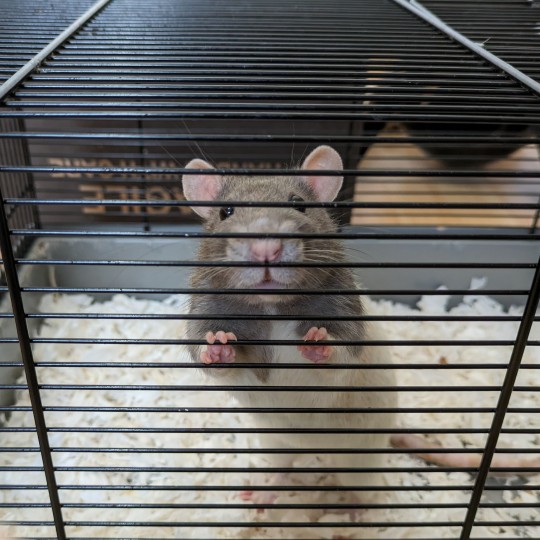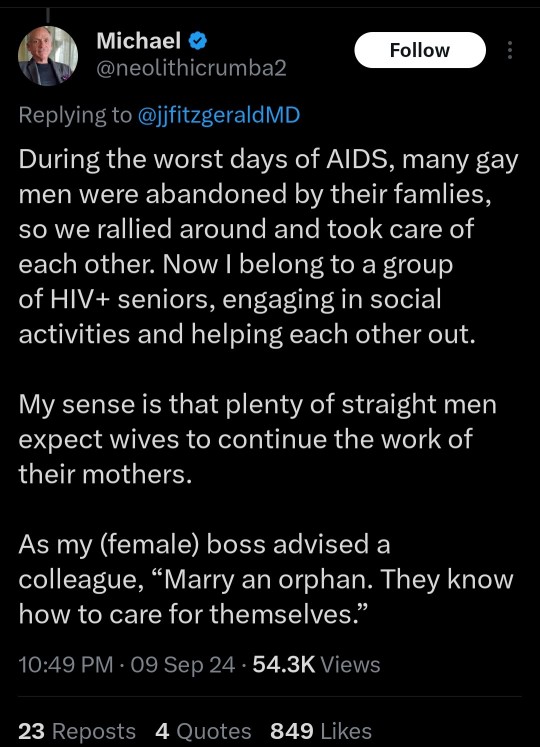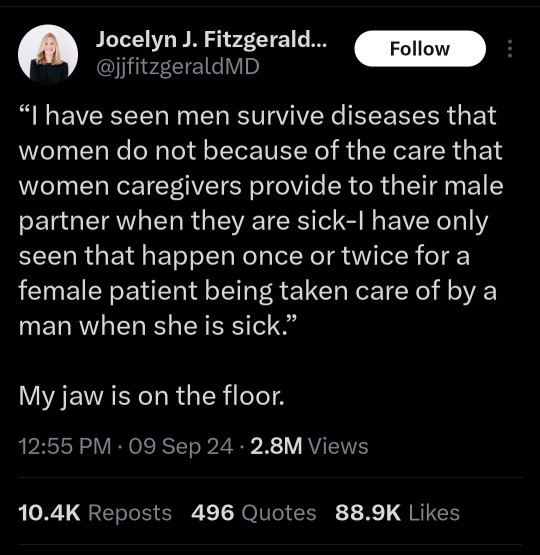#pituitary tumour
Explore tagged Tumblr posts
Text
so i haven’t posted on tumblr in ages because i ended up having brain surgery!
tina tumour is gone! it was a rough few weeks following the surgery, but i think im coming out the other side now!
i no longer have cushing’s disease as my surgery was successful! my cortisol has dropped and now i have secondary adrenal insufficiency and have to take replacement cortisol!
i’m exhausted a lot of the time, have headaches most days but i feel better than i have in years stress wise, and so much mentally with it!
8 notes
·
View notes
Text

TSRNOSS, page 89.
#synaptic growth#electroconvulsive shock#cold#axon conduction#block#carpal tunnel syndrome#height#polygenic#Marfan's syndrome#pituitary tumours#hormone#cursive#handwriting#manuscript#journals notebooks
0 notes
Text
Bitey McBiteface isn't feeling well and has taken a break from biting

Bitey McBiteface is behind bars
#hoping some pain meds will help with the arthritis#waiting to get blood test results to see what's going on with her kidneys#but she's most likely also got a pituitary tumour#we'll have to wait and see whether she's fully retired from biting or just taking a break
211 notes
·
View notes
Text
https://biiut.com/read-blog/46505_pituitary-tumours-what-are-they-symptoms-risk-factors-diagnosis-treatment-and-mo.html
0 notes
Note
Genuine question here, how can we increase patient autonomy and handle psychiatric medication for people who are disabled to a point where communication and understanding medication schedules would be difficult? I think a lot of people in my circles have gotten to a point of understanding, yes, anti-psychs can be more detrimental to patients with no positives when talking about a person with psychosis in their 20s who is somewhat able to manage themselves, but have difficulty parsing what would be best in the case of an older person with a neurodigenerative disease, and as someone who is at risk for developing Alzheimer's, I'm not sure what patient autonomy would look like for myself at that stage of life.
alright so, the question of how to increase patient autonomy for those who are mentally incapacitated in various ways is a legitimate one -- this has been a problem in paediatric and geriatric medicine for reasons both social and biological, and also affects disabled/injured/sick people of any age.
the assumption you've attached, though, is that 'antipsychotics' (neuroleptics) are actually in a patient's best interest, and that therefore it might be justified to administer them without consent in cases where it cannot be obtained. this is just incorrect and tells me you didn't read any of the links in my other posts about neuroleptics. these are not drugs that 'cure' 'psychosis' -- they are drugs that used to be marketed as 'chemical lobotomies' for a reason! they are unsafe in the long and short term, and are administered because they make patients compliant (incapacitated, numbed out, chemically dependent). the question of consent is just moot here imo.
to touch on the general question: usually with patients who are unable to consent, what is supposed to happen involves a mix of designated legal representatives, loved ones who are present, professional patient advocates, and the patient's own advance directives. my opinion (& this is common among disability advocates) is that doctors are often overeager to decide patients cannot consent, and will talk over/about them rather than taking the time to try communicating with them in ways they can understand. a person's own legal representation or the hospital's patient advocates sometimes help bridge this gap, but many times these people are also nakedly ableist, and fundamentally it's ableism that is exacerbating this tension.
obviously there will also always be some cases where it's simply impossible to get consent from the patient themself (for example, my uncle had a pituitary tumour that made him suddenly and irreversibly experience a total break from reality, resolved only after his wife consented to surgery on his behalf) -- in those cases, yeah, medicine sometimes means intervening without a direct yes from the patient. but the reality is that many people who are currently considered unable to communicate, choose, or advocate for themselves are in fact capable of a trying to do those things -- they're simply not being granted that right in current social/economic conditions. this often includes people dealing with neurodegenerative conditions btw -- these are incredibly difficult conditions, i won't pretend otherwise, but it is a myth that they completely and instantly rob a person of all ability to formulate preferences about medical treatment or quality of life, or to express those preferences.
108 notes
·
View notes
Text
hm. i don't quite understand how the four humours relate to the similarly named substances that we do actually know exist in our body
like, blood seems easy, right. we all know what blood is, i have to assume that when Galen or whomstever talked about blood-the-humour they were talking about the red thing that leaks out of your body when injured, even if they wouldn't have understood what it was made of and ascribed it entirely different properties.
but then there's phlegm. there's a real thing called phlegm. i would also expect it to have been familiar as a concept to anyone who remotely paid attention to the human body for the last couple thousand years? we keep coughing it out when sick and all. but then i find this passage in wikipedia:
The phlegm of Humourism is far from the same thing as phlegm as it is defined today. Nobel laureate Charles Richet MD, when describing humorism's "phlegm or pituitary secretion" in 1910 asked rhetorically, "this strange liquid, which is the cause of tumours, of chlorosis, of rheumatism, and cacochymia - where is it? Who will ever see it? Who has ever seen it? What can we say of this fanciful classification of humours into four groups, of which two are absolutely imaginary?"
the two he agrees are real are blood and yellow bile, so apparently he agrees that humours can be 'real' even if the theory of humours says all sorts of weird things about them that aren't true. but then why exclude phlegm? is the phlegm of humours people entirely unrelated to phlegm as in sputum? why do they have the same name, then?
and then there's the biles. yellow bile and black bile. bile is a real thing, and it is yellowish; Richet grants that yellow bile is the same thing as it. Is there anything that could plausibly be matched with black bile in reality, and what is it called?
14 notes
·
View notes
Text
Chloe
I remember the neon-blue Alizé in the bottle Leftover from the trip down South I walked home from the dinner party on a warm and fuzzy high Then dragged myself back up the hill in the morning The house looked peaceful from the outside when I drove away Later I heard about your mum falling during cleanup Her head almost hit the kitchen counter The tumour was so close to the pituitary gland
(she says brain fluid tastes like saltwater)
I remember the dark shapes of the seaweed on the sand As I privately confess in awkward words, the unfairness How cruel it is that she can’t conceive after trying so hard She’d be the best mum and she deserves her own I don’t remember her saying much It was probably too painful We talk about her job instead Still social work but less stress if she gets it
(your mum is very patient with me)
I remember the taste of carrot cake in my mouth Your mum’s smile as she tells me “I love how she goes,” she says to our friends’ giggling, and it’s true I can’t stop my feet whipping back and forth across the carpet Too-big feelings stick with me for months I take her hand after the Van Gogh exhibit You are showing underneath her sundress I tell her I am so excited that you are coming
(it’s like no time at all has passed)
I remember extra servings at Bort’s birthday The exhilarating swing between confusion and joy What it means that your parents are gone Hello! I am so happy to meet you You are the smallest little bundle, a perfect sweet potato I am gently scolded for hogging the baby But I just want to stare at you like a weirdo And wonder what you’ll do
(it’s true I did hog you a little bit)
I remember my hand is the width of your back You are pale and pink and impossibly warm Every act of eating is pure carnage You are so proud of your little teeths You will probably walk before the year is out I can't wait to talk with you I don't know what kind of stuff you will like yet We're all so excited to see
(Please don't hate me too much as a toddler) (I know you might) (It's okay)
9 notes
·
View notes
Text
Thinking about the time when I got a blood test done and the lab technician wrote in big capital letters that I had dangerously low testosterone levels and I should seek immediate healthcare because of the risk of a testicular or pituitary tumour.
Turns out they were using a male range for my hormone levels even though I'd been on E and a T-blocker for over a year. And they just. Didn't check my patient notes.
The next time I had a blood test ordered, my doctor had written 'TRANS' in big red capital letters on the order form so they couldn't miss it and cause another minor heart attack.
3 notes
·
View notes
Text
something i didn’t anticipate was being able to feel the tumour in my head.
AND THATS FREAKY.
i’ve had this constant low key headache for about a month, and have no realised ITS LITERALLY MY TUMOUR.
tina tumour is not cool.
tina tumour needs to be taken out.
fuck u tina tumour
6 notes
·
View notes
Text
learned a new word today, "galactorrhea"
which sounds... sort of terrifying
or maybe a good name for a death metal band with an outer space theme
but actually means spontaneous lactation not associated with childbirth or nursing (can happen to people who've never been pregnant in the first place, cisgender men, transgender women, etc)
it can be caused by hormonal dysregulation or thyroid problems, possibly a tumour in/on the pituitary gland, or as a side effect of some medications (obviously HRT and/or birth control pills, but also certain antipsychotics), but apparently no obvious cause is found in about 50% of cases
flipping heck people's bodies are surprising
5 notes
·
View notes
Text
I can’t stop thinking about this. I came back to find this post, because I can’t stop thinking about it.
When I was ten years old, my mother had a surgery to remove a brain tumour the size of a golf ball from her pituitary gland. The surgery had massive complications. She was in hospital for nearly a year. She was critically ill for most of that. But when she got sick, something weird started to happen. Everyone - from family members to random strangers - couldn’t stop fucking complimenting my dad.
I distinctly remember some random adult joking to me (a child!) that if mummy didn't get better soon, daddy was going to find himself a girlfriend. Another person told us he was a saint for not running off with one of the “hot PTA mums” who brought us sympathy casseroles on the weekends.
Now, my parents have always had a remarkably healthy, egalitarian marriage. They taught my siblings and I that it was a basic standard - to be a loving equal with your spouse. And I wasn’t a totally sheltered kid, I knew that not everyone’s family was like that. But fucking hell. Hearing people compliment my dad for not cheating on his dying wife? That was when it really sunk in, that it wasn’t actually the basic standard at all.
Because husbands are, on some level, forgiven when they slack off, when they fuck up, when they cut and run. Wives are not.
And the men who stay might be called saints, but the ones who leave are still totally understandable. We almost expect it of them.
So yes, the “straight men can and will leave their dying wives” phenomenon is real. And according to an alarming number of people, my mother is supposed to be grateful that it didn’t happen to her. Fuck them. Never stay with a man who wouldn’t do the bare fucking minimum.



#Spoilers for anyone who was worried: my mum is fine!#An hour ago she made beef ragu and we watched an episode of the west wing#We had a long argument about whether or not martin sheen and michael sheen are two different people#Because she wouldn’t stop calling Bartlett “president good omens”#twitter#feminism#toxic masculinity#fuck the patriarchy#Trigger warning brain injury
42K notes
·
View notes
Text
March 1, 2023 Wear a Leek, Make Some Soup, Repel a Saxon
Just taking a break from banging my head against the nearest wall. Let’s look at a grand tradition from a wonderful part of the world – how I’d love to be in Wales right now. Today is St. David’s Day. Traditionally Welsh people around the western world wear a leek—yes, the veggie that looks like a green onion with a pituitary tumour. I’m not sure if the tradition is still followed or if it’s…

View On WordPress
0 notes
Text
Top Hospitals for Breast Cancer in India: Choose the Right One

These days, breast cancer is one of the most common cancers among women, but with early diagnosis and advanced treatment techniques, patients get the chance of a high recovery rate. Breast cancer treatment in India is home to many international patients who are looking for affordable and best hospitals for breast cancer surgery.
If you or your close one is seeking the best breast cancer hospital in India, Cross Border Care, a leading medical consultant, will help you explore the top hospitals and their specialised programs to ensure you receive the best care.
cost of brain tumor surgery in India pituitary tumour surgery cost India Deep Brain Stimulation Surgery Cost India arrhythmia treatment surgery Cost in India
Indraprastha Apollo Hospital, New Delhi
One of the leading healthcare providers for breast cancer treatment in India is Indraprastha Apollo Hospital. If you're looking for the best, its multidisciplinary approach works together to provide customised treatment options for oncologists, surgeons, and radiologists.
Why Choose Apollo Hospital for Breast Cancer?
Due to the Advanced Breast Cancer Treatment Program in India.
Apollo Hospital offers Specialized Breast Cancer Surgery options, which include Lumpectomy and Mastectomy.
Targeted therapy, immunotherapy, and chemotherapy for better results.
Popular for Affordable Breast Cancer Treatment Cost in Apollo compared to global Hospitals.
Offer post-treatment rehabilitation and counselling.
We understand your need for world-class technology and experienced specialists. That's why Apollo Hospital can be the best breast cancer treatment hospital in India.
Max Super Speciality Hospital, New Delhi
International patients looking for state-of-the-art breast cancer departments in India can visit Max Super Speciality Hospital for treatment. The hospital is popular for early detection, diagnosis, and advanced treatment under one roof.
Some of the Key Features of Max Super Speciality Hospital are:
Renowned for Breast Cancer Treatment Specialists in India working on the latest research and techniques
Expertise in breast-conserving surgery, oncoplastic surgery, and reconstructive procedures.
Offer radiation therapy and robotic-assisted surgery for faster recovery.
Personalised after-treatment and support, including dietary planning, etc.
Max Hospital's patient-centric care and approach make it one of the best hospitals for breast cancer surgery.
Fortis Memorial Research Institute, Gurugram
One name you can't miss while finding a leading centre for breast cancer treatment in India is Fortis Memorial Research Institute (FMRI). The hospital provides cancer care treatment options with top-notch oncologists and the latest medical advancements before considering a personalised consultation to know everything in detail.
Why Choose Fortis Memorial Research Institute for Breast Cancer Surgery:
Options for breast cancer surgeries, including breast reconstruction.
Latest chemotherapy and hormonal therapies.
Breast cancer support programs like mental health counselling.
High success rates in past years.
It's time to get a trusted choice for breast cancer treatment in India, and FMRI ensures quality medical treatment at each step, especially for foreign patients. Do visit to know more.
Final Thoughts: Choosing the Best Breast Cancer Hospital in India
As an international patient, choosing breast cancer in India is crucial for successful treatment and recovery. Each of the hospitals listed above provides world-class care and medical facilities.
If you or your loved one is facing a breast cancer diagnosis, Cross Border Care is here to arrange affordable breast cancer treatment and consult a specialist at these hospitals. Our team provides the proper guidance and treatment plan for a healthier future. Call or mail us at +91 813 0786 779 or [email protected].
Our Latest Post
0 notes
Text
Just FYI, there are some topical medicines which genuinely could be dangerous to smaller creatures (pets/children) because of differing surface area:volume ratios. There are some topical medicines used in animals which can block certain hormone pathways, which could be a serious problem if a toddler cuddled the cat. Sometimes, though.... There was a case of a castrated male dog who suddenly developed gynecomastia (big boobs), and the vet had no idea why. No gonads to have a gonad tumour on, no other signs to suggest a pituitary tumour, dog not otherwise chubby, development too even and 'normal' to be a mamary cancer... The dog's owner was a menopausal woman taking HRT to manage her symptoms. She was applying topical oestrogen to her thighs. Her dog liked to come and lie his bald tummy across in her lap in the evenings.
I saw a post a little while ago that I'll never find again, but it's still bugging me. It was written like a PSA about proper procedure for applying testosterone gel--mainly, how you're not supposed to let it get on anyone else's skin.
And that's correct. But the post went hard on it, like "please, please be aware of the risks of this medication, it can do so much damage to others if you're not careful, I just think we should be honest about the advantages and disadvantages of medications like this."
It could've been sincere, but it gave me concern-trolling vibes real bad and I can't get it out of my head. So here's my PSA:
Don't slap on your T-gel and then immediately rub your bare bicep on anyone.
Once 2 hours have passed, the remaining amount available to be absorbed is negligible. The med guide says to wash your bicep before you rub it on anyone, but even that's being extremely cautious.
Testosterone isn't poison. If you apply a full dose every day, it still takes months before anything noticeable happens. It's not going to kill someone who accidentally touches your skin for .5 milliseconds.
You do not have to handle T-gel like it's drain cleaner. It's not corrosive. Cis women have testosterone. It's a thing that humans have in our bodies. Avoid getting your medication onto anyone else, but holy shit nothing bad is gonna happen if you forget one time and snuggle shirtless.
T-gel is alcohol-based, so it's best to refrain from being on fire until it has dried thoroughly.
Don't put it on your dick. If you've ever accidentally or on purpose gotten IcyHot on your dick, you have an intuitive understanding of how the skin there differs from bicep skin. Also, the effects of testosterone gel don't localize like that and your dick is fine, I promise.
Don't eat it. I don't know why you'd want to, but don't.
Don't leave the bottle out around little kids on account of little kids being the way that they are, i.e., enthusiastic about potions.
32K notes
·
View notes
Text

ML Zoomcamp Project Capstone 2 – 2: Exploratory Data Analysis
The dataset used in this project is the Brain Tumor MRI Dataset https://www.kaggle.com/datasets/masoudnickparvar/brain-tumor-mri-dataset from kaggle.
It consists of 7,023 magnetic resonance imaging scans, annotated in a folder structure of 5,712 test and 1,311 train. The dataset consists of images of no tumour and brain tumor types: pituitary, meningioma, and glioma, as shown in the attached diagram.
0 notes